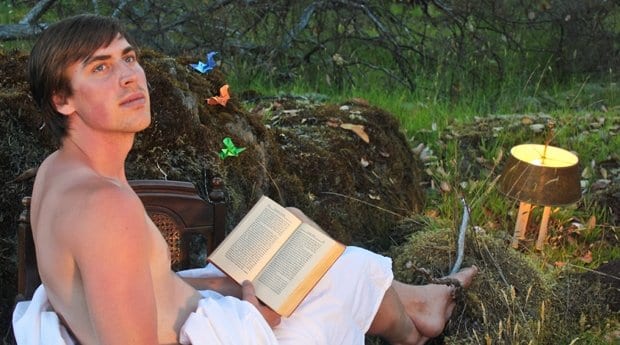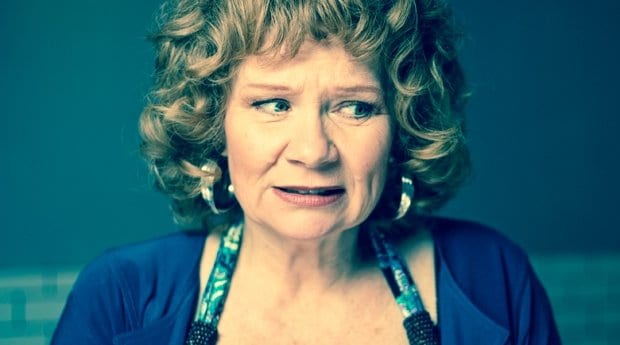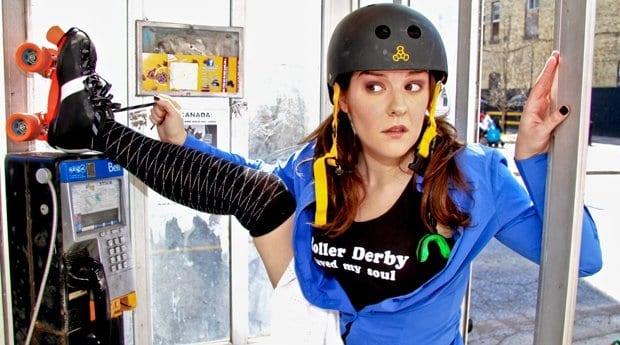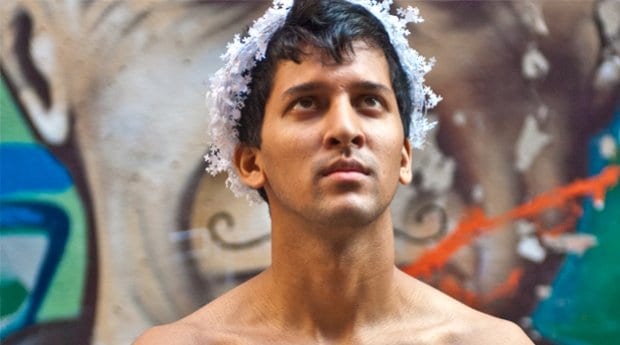
Ludwig & Lohengrin. Credit: Jonathan Brower

The Chariot Cities. Credit: Emily Cooper

…didn’t see that coming. Credit: Robin Nielsen

Roller Derby Saved My Soul. Credit: Richard Gilmore
The queer history of the Vancouver Fringe Festival’s three decades may have generated some controversy along the way, but it has been groundbreaking for both audiences and queer artists alike.
Despite concerns over censorship and even the possibility of arrests at other cities’s festivals, in its infancy the Vancouver Fringe never felt those same pressures. “We always felt Vancouver was much freer and had fewer constraints from the morality police, and the Fringe always felt like an opportunity to flaunt it,” says Joanna Maratta, the festival’s founder and first executive director.
“Even when some of the more controversial shows, like Fuck Machine and The Happy Cunt, started heading west, we engaged with the City of Vancouver and asked them what they were going to do, and they totally backed away,” she says.
Despite a 1993 headline in the now-defunct conservative magazine BC Report that described the Fringe Festival as “smut imitates art,” such criticism was infrequent and never taken seriously. Instead, the Fringe let its patrons decide which shows lived and died, an attitude that continues today.
“We had lots of shows about sex, drugs and rock and roll, and some of them were really good and some were really bad,” Maratta says. “The attitude was that even if it was bad and distasteful, you still had the opportunity to do it, but we left it up to audiences to decide what they wanted to support.”
At the turn of the new millennium, when queer artist Michael V Smith pushed boundaries by convincing spectators to get naked in his 2002 show Privates: A Public Unveiling, he saw an evolution in his audience.
“Years ago when you put on a queer show at the Fringe, it was mostly a queer audience that would show up,” Smith says. “People get it now. Audiences have a better understanding of queerness, and the mainstreaming of gay and lesbian lifestyles dramatically changed how queer shows are seen. There are some real positive elements to it, but there has also been a loss to the queer edge.”
Colin Thomas, a gay theatre critic who has been covering the Vancouver Fringe from its inception, agrees. “There is still a great deal of adventure going on at the Fringe, but it is perhaps not quite as edgy as it once was.”
By the late 2000s, Berend McKenzie brought his controversial and outrageously funny Get Off the Cross, Mary and his autobiographical Nggrfg to the Fringe not to be deliberately provocative, but in an attempt to find a sympathetic venue to present his work.
“Places like Buddies in Bad Times in Toronto or the Arts Club in Vancouver would have never touched those shows with a 10-foot pole,” says McKenzie, who used the festival as a proving ground for Nggrfg, which eventually went on tour outside the Fringe circuit.
David Jordan has been at the festival’s helm for the last nine seasons. He, too, points to a sexual evolution of queer shows at the Fringe. “What we’re seeing with more frequency are sex-positive shows like Bi, Hung, Fit and Married and Cameryn Moore’s Slut (R)evolution,” he says.
As a non-juried festival with shows chosen each year by lottery, the number of queer offerings will continue to vary, but given its goal of offering inclusive and uncensored theatre, our stories will no doubt continue to play an important role at the Vancouver Fringe.
Xtra’s picks of the 2014 Fringe
Never mind what Jesus would do, what about Meat Loaf? In Damian Rumph’s semi-autobiographical drama Meat Loaf Jesus, the two larger-than-life characters become the centre points to a queer coming-of-age drama.
Meat Loaf Jesus tells the story of three teenaged friends living in a small suburb of Edmonton. Hanging out at the local teen gathering spot, Mark suspects that Alex might be gay, too. In a drunken frenzy one night, the two hook up while Meat Loaf’s “Heaven Can Wait” plays in the background. As Alex begins a downward spiral after the encounter, Mark is desperate to help.
“This is a great story of ’80s kids who had no gay role models. Mark does his best to help Alex, but he has no resources,” director David C Jones explains. “That idea of not having anyone to turn to for help still resonates today for many young gays.”
For Rumph it was a spiritual connection to music as a young man in Edmonton that inspired him to write the play with the unusual title. “Music was my religion, and for most of my life I listened to Meat Loaf,” he says. “For me, music became my spiritual connection to the world, and I began to think about how to connect Meat Loaf’s Bat Out of Hell album into something greater.”
Here are some other shows you won’t want to miss:
In Ludwig & Lohengrin, Calgary artist Kyall Rakoz brings the historically inspired story of King Ludwig II to the stage. Renowned for his patronage of the arts, the gay Ludwig struggles to reconcile the desires of the heart with societal expectations.
Unspoken truths, broken hearts, substance abuse and damaged souls may sound like a classic soap-opera story line, but The Chariot Cities is actually inspired by the work and lives of musical families like Canadian music legends the Wainwrights. They’re getting clean, coming out and going home.
Television’s favourite fairy-tale granny, Beverley Elliott, takes a personal and irreverent look at her life, from small-town Ontario to Vancouver’s gay bars and onto the set of Once Upon a Time, in her one-woman autobiographical show …didn’t see that coming.
Roller derby and superheroes collide in Nancy Kenny’s one-woman show Roller Derby Saved My Soul. Nominated for a 2014 Canadian Comedy Award, it tells the story of a shy 30-something geek who falls in love with both the sport and fellow player Diana.
For showtimes and more information, go to vancouverfringe.com.

 Why you can trust Xtra
Why you can trust Xtra


